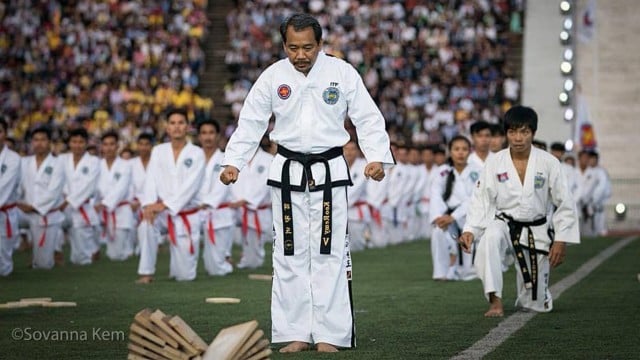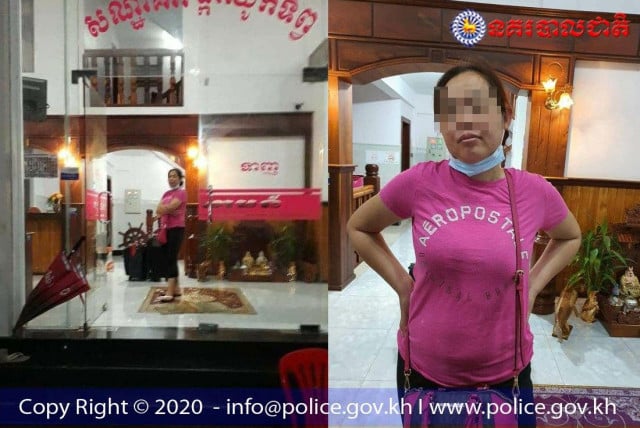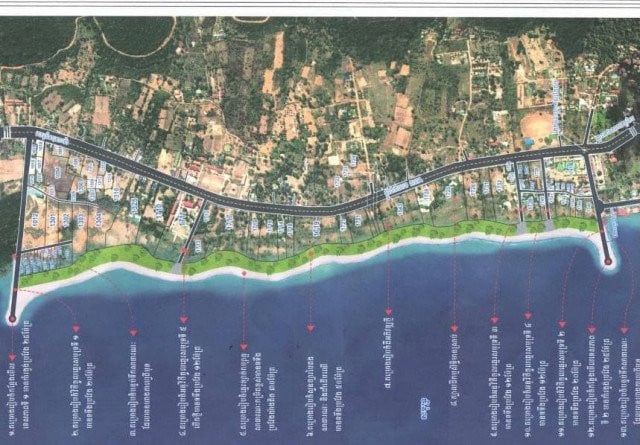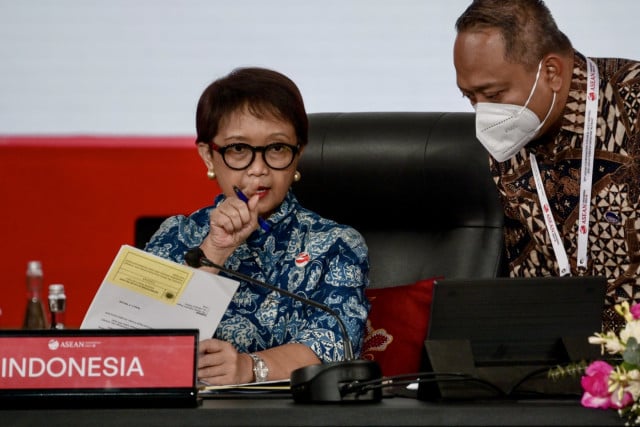Keo Remy Explains His 7-Dan Rank and the Morality of Taekwon-Do

- Ky Soklim
- March 26, 2021 9:48 AM
Taking time out from his role as head of the Cambodian Human Rights Committee, Keo Remy enjoys fighting people and sat down to talk with Thmey Thmey about obtaining a 7-Dan black belt in Taekwon-Do and why he loves martial arts.
Ky Soklim: As I understand, you were recently offered a 7-Dan black belt by the International Taekwon-Do Federation (ITF). Why did the federation decide to grant the 7-Dan black belt to you?
Keo Remy: I received it after a meeting of the executive board. There are many processes and protocols within our works. One of them being the process of promoting the grandmaster level inside the field. Honestly speaking, it is a rare sight to see the ITF granting someone with a black belt of 7-Dan.
From 4-Dan to 6-Dan, the title is “instructor”—you don’t become a “master” until 7-Dan or a “grandmaster” until 9-Dan. In order to reach this far, a lot has to be achieved. Some of the requirements are to be certified by an international judge and an international referee. Plus, the person also has to work for at least seven or eight years in order to possibly obtain this title.
Ky Soklim: As Cambodia is a small nation regionally, from what I have learnt, why have you been qualified as the vice-president of the ITF? Furthermore, how many vice-presidents are there within the ITF?
Keo Remy: Since I have involved myself a lot with many important meetings, I know how the protocols are played out. I am actually within the top eight top decision-makers of the federation. There are five vice-presidents within the ITF. A Bulgarian vice-president and I are the newly-elects.
We [Cambodia] have presented our martial art skills onto the official tournament stage and we have proved ourselves with our leadership as observed by the South Korean observers from the federation itself. Apart from that, during the important meeting in Asia as well as in the world, we have voiced our opinions which attracted the attention of the federation. We have been observed to have not just the physical strength but also the mental strength which may further endure the development of the ITF. All of these factors have allowed me to become the vice-president of the federation.
Ky Soklim: By returning to your 7-Dan black belt, was it a black belt for combat or was it a black belt for honor?
Keo Remy: Oh, I also want to make this clear as well. The ITF never offer any black belts of honor to anyone. If you enter the federation, even though you are not really good at that martial art, you have to at least try to learn it and show them something. You have to do your best and prove your commitment to them.
Ky Soklim: I wanted to know a bit about the background of your training. Were you trained in Cambodia or were you trained somewhere else outside the border?
Keo Remy: I began training the martial art since around 1973 at the National Olympic Stadium here in Phnom Penh. It was my uncle who took me to train—I was very young back then—during the Pol Pot regime, although I did not have proper training, I was asked to fight with other kids since they [comrades] wanted to see the art of fighting. It was somehow a real fight. The reward from winning the fight was hardened rice [rice which is dried under the sun].
After 1979, I continued with Judo as well as the art of fighting with Nunchaku. During this time, my trainers had no authorization in offering me the certificate in training that can be officially recognized by the federation outside the country. It was a time when people who know more simply taught the people who know less. Well, we do know how to fight but we were not able to measure our knowledge with the categorization of the Dan.
Ky Soklim: So, when did you received your Dan?
Keo Remy: I received my Dan when I started training again in the United States during the year of 1990. I got my 3-Dan over there and I got as far as the 6-Dan when I came back to Cambodia. When I first arrived in the US, I was given the white belt. I am told to start training again. In progressing throughout the various levels of the belt, there were plenty of proper testing going on.
When facing the westerners with bigger body structure, I need to remind myself to be very careful when fighting. Some of them were body builders. They were heavy and they were powerful. I was taking a lot of precaution because I know I could not use my brute strength to face those guys. I was seeking special tutoring as a way to further train myself. After enough training, during my 2-Dan black belt, I only deployed one kick toward an American fighter and one of this rip bone was fractured. It was during that time that I remarkably gain my reputation.
Ky Soklim: Martial arts can, of course, train the physical strength and make it stronger. Can it also strengthen the mental strength? If so, in what way?
Keo Remy: For some, while training, they may not able to meet a good trainer. They can be physically strong but they do not possess rules within themselves. That makes them look like gangsters. However, when you train with proper rules, it is different. My grandmaster did not only teach me how to handle larger opponents, but he also gave me morality. He explained to me the state of emotion. As a result, we can maintain our own focus and emotion well under pressure.















